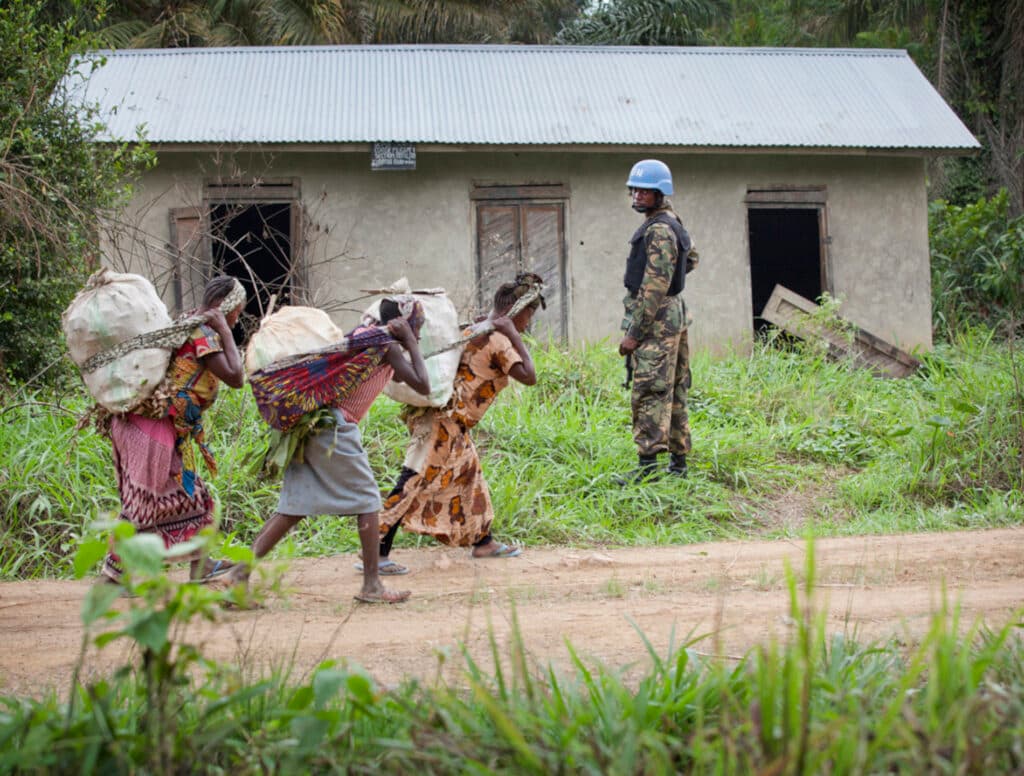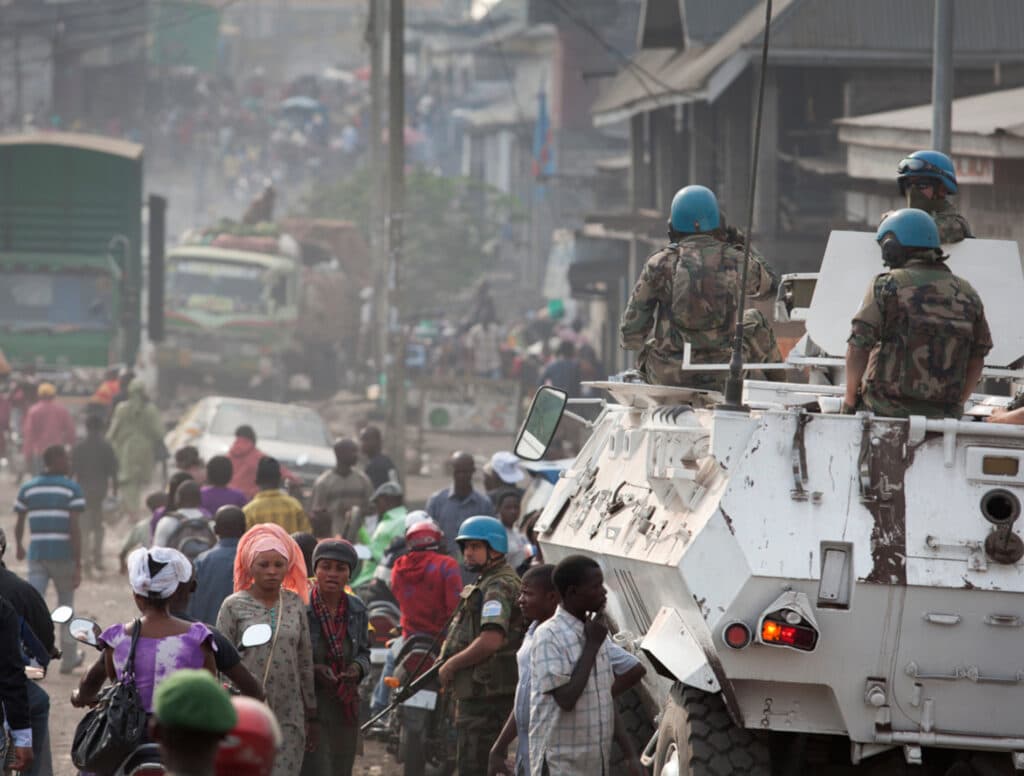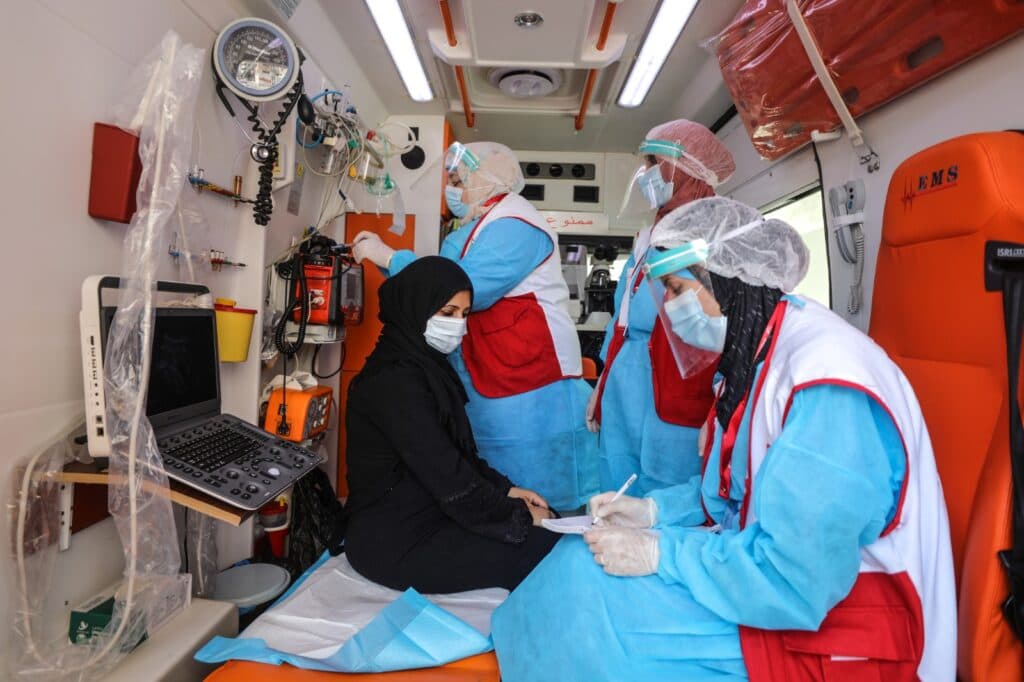
Detention and IHL
Rules of international law relating to the protection of persons in detention
International humanitarian law (IHL) and international human rights law (IHRL) set out the situations when detention is lawful, and what protections detained persons enjoy.
In armed conflict, not every deprivation of liberty is unlawful. International humanitarian law (IHL) gives warring parties the right to detain individuals for various reasons. It is important to note that the rules relating to detention must always be read in conjunction with the application of international human rights law.
Both the Third and Fourth Geneva Conventions set out detailed protections for those held in detention in situations of international armed conflict. The Third Geneva Convention outlines protections for Prisoner of War (POW), while the Fourth Geneva Convention sets out the protections afforded and circumstances when civilians may be detained.
In non-international armed conflict, IHL regulates detention in a less detailed manner. However, there are still clear and fundamental guarantees that protect those held in detention.
Fundamental guarantees
Any detained person, irrespective of the reason for detention and the time, is protected by fundamental guarantees, namely:
- Prohibition against the arbitrary deprivation of liberty;
- Protected against violence to life and person: in particular, murder, rape, mutilation, cruel treatment and torture;
- Outrages upon personal dignity; in particular humiliating and degrading treatment.
Detention in international armed conflict
The four Geneva Conventions set out the circumstances in which individuals can be detained during an international armed conflict.
Prisoners of War: Prisoners of War (POW) may be detained until the end of the conflict, regardless of their conduct. They may not, however, be prosecuted or punished for mere participation in the hostilities, except in the case of prosecution for war crimes.
Civilians: Civilians may be prosecuted for participating in hostilities and for war crimes. Additionally, under the Fourth Geneva Convention, protected civilians may, for imperative reasons of security or absolute necessity, be subjected to assigned residence or internment. Any such internment must be subject to periodical review. Articles 79-135 set out the detailed treatment that any internee must be afforded. An Occupying Power may also need to detain those who have committed offences which violate local penal law.
Detention in non-international armed conflict
Persons who have allegedly committed a crime will be subject to prosecution and possible imprisonment. Therefore, when an armed group is fighting against a state, members of the group will likely face prosecution.
One challenging question for modern IHL is whether armed non-state actors have the right to prosecute and detain those they are fighting against.
While IHL is based on the premise that belligerents are equal, the rules of non-international armed conflicts do not always meet this ideal as they are drafted by states. IHL does not provide a clear basis or easy answer to this question.
Administrative detention
One of the most troubling and challenging detention practices is that of administrative detention, sometimes called internment.
Administrative detention allows for the detention of an individual on the basis that they represent a security threat of some kind, rather than in response to a specific offence. IHL captures this notion under ‘civilian internees’.
However, since the creation of the Geneva Conventions there have been significant developments, mainly under international human rights law, which places restrictions on the possibility to detain individuals indefinitely without charging them. Human rights law establishes:
- An obligation to inform the individual of the reasons for their detention;
- An obligation to bring a person arrested on a criminal charge promptly before a judge; and
- An obligation to provide a person deprived of liberty with an opportunity to challenge the lawfulness of detention (habeas corpus).
With regard to the first two obligations, even though they are not listed as non-derogable in human rights treaties, case law has established that they may never be dispensed with altogether.



